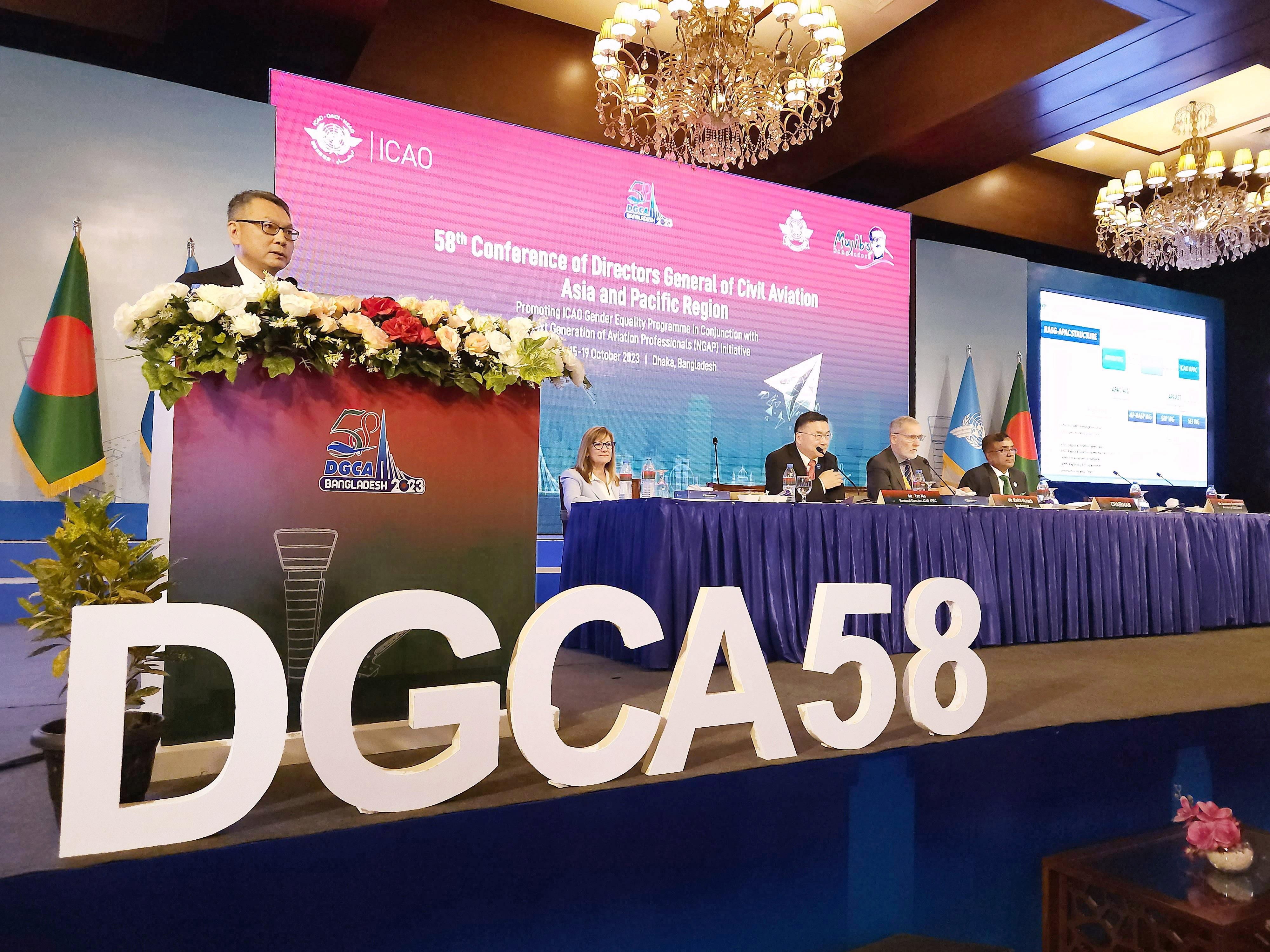DGCA attends Asia-Pacific aviation heads conference in Bangladesh (with photos)
The Director-General of Civil Aviation (DGCA), Mr Victor Liu, led a Civil Aviation Department (CAD) delegation to attend the 58th Conference of Directors General of Civil Aviation, Asia and Pacific Regions, organised by the International Civil Aviation Organization (ICAO), in Dhaka, Bangladesh.
The theme for this year's Conference was "Promoting ICAO Gender Equality Programme in conjunction with Next Generation of Aviation Professionals (NGAP) initiative". The five-day Conference, attended in-person by more than 320 delegates from 48 states, administrations and industry organisations, concluded on a high note today (October 19). Discussion and information papers covering a wide range of subjects, including aviation safety, air navigation, aviation security, aviation and the environment, aviation technologies, as well as regional co-operation, were submitted by aviation authorities and industry organisations to the Conference.
Among the four papers submitted to the Conference by the CAD, one of them was themed "Achieving Gender Equality for the next generation of aviation professionals in Hong Kong, China" in response to the Conference's initiative, sharing the experience of the local aviation industry and the CAD in promoting gender equality. Meanwhile, the other three papers shared the CAD's experience in leveraging digitalisation and automation for smart air navigation and airport operations, achieving high resilience in sustaining operations of critical aeronautical infrastructure, and briefed the Conference on the upcoming Asia Pacific Region Innovation & Capacity Building Symposium 2023, with the theme "Uniting the Strength of Innovation for Building a Seamless Sky", to be jointly hosted by the Civil Aviation Administration of China (CAAC), the CAD of Hong Kong and the Hong Kong International Aviation Academy at the Hong Kong AsiaWorld-Expo in December 2023.
During the Conference, Mr Liu reported the work progress of the ICAO Regional Aviation Safety Group – Asia and Pacific Regions as the Chairperson.
During their stay in Dhaka, Bangladesh, the CAD delegation signed an updated Technical Arrangement on Aviation Maintenance with the Civil Aviation Authority of Singapore. The CAD delegation also attended side meetings with representatives from the CAAC, the Civil Aviation Authority of Macao, the Civil Aviation Safety Authority of Papua New Guinea, the Civil Aviation Authority of the Philippines, the Civil Aviation Authority of Thailand, and the International Air Transport Association. Views on matters of mutual interest, including the recovery progress of aviation sectors across the region, were shared, and ways to strengthen co-operation were explored with the aim of injecting new impetus to facilitate aviation developments.


